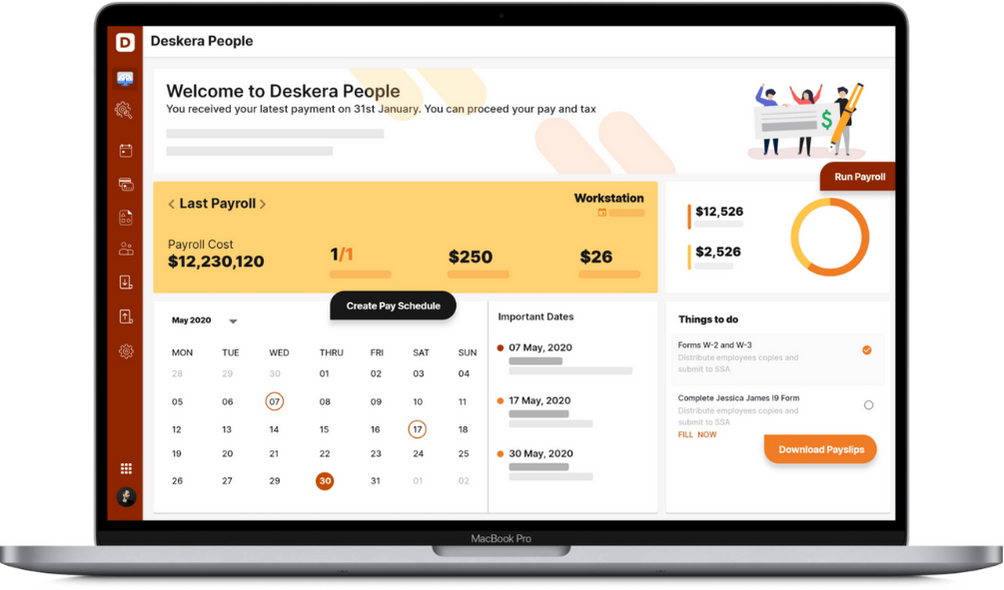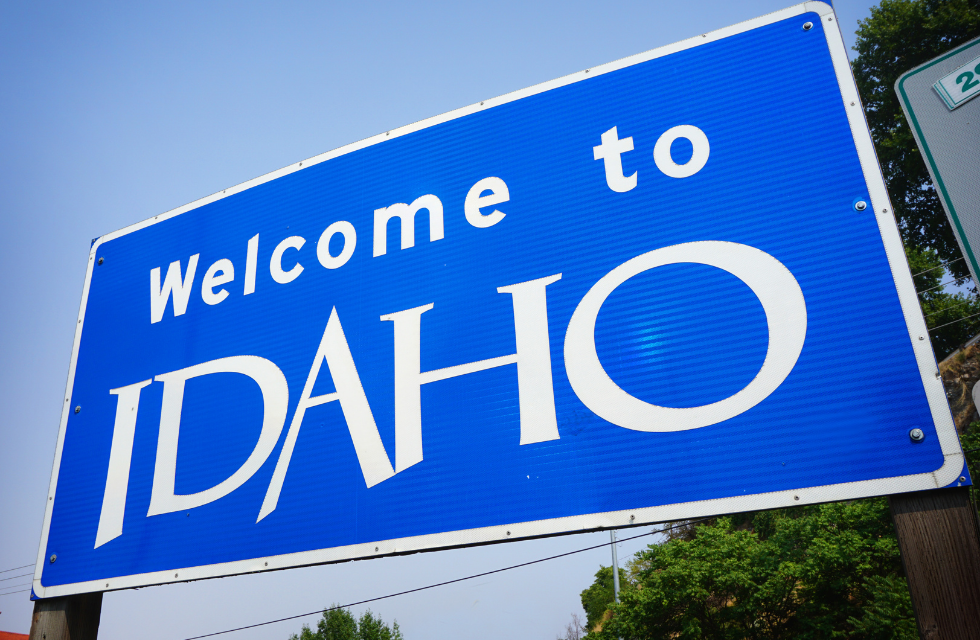The state of Illinois has its own set of payroll taxes and arrangements that employers need to follow. While the employees aren’t required to file or report any income tax, the employer must maintain a payroll, recording every penny that goes to the government as tax. There are systems already in place for Illinois payroll taxes.
If you are just starting out as a business and have employees on the roster that you pay salaries, you would need to follow the stipulated guideline and procedures as required by the government to stay compliant with Illinois payroll taxes.
Let’s learn a little bit more about how to tackle payroll compliances in the state of Illinois by covering these essential topics:
- What is Payroll Tax?
- A Step-by-Step Guide to Setting up Payroll in Illinois
- Set Your Business up and Register as an Employer
- Register with Illinois State as an Employer
- Start Setting up Your Payroll System
- Collect Payroll Forms from Employees
- Work With Timesheets
- Work Out Payroll
- File Payroll Taxes
- Record Everything
- Payroll Tax Reports
- Illinois Payroll Taxes
- Illinois State Income Tax
- Reciprocity Agreement in Illinois
- Illinois Insurances
- Unemployment Insurance
- Illinois Minimum Wage
- Illinois Overtime
- Methods to Pay Employees in Illinois
- Cash Payment
- Payroll Checks
- Paying Through Direct Deposit
- Payroll Cards
- Payroll Forms
- Importance of Maintaining Payroll
- How Can Deskera Assist You?
- Key Takeaways
While a lot of payroll tax guidelines in Illinois align with the federal rules and systems, there are certain unique regulations that only exist at the state level in Illinois. After setting up your new business here, you would need to look these up.
What is Payroll Tax?
From the salary that an employee of a company is entitled to, the employer deducts a certain specified sum and pays it to the state and federal governments on behalf of the employee – this is called a payroll tax.
You could call this an “income tax” of sorts. Payroll tax in Illinois can be utilized to fund the Medicare program and the Social Security program. On your paystub, you would locate these taxes under the MedFICA and FICA labels.
Another sum is withheld from an employee’s salary, and this sum goes towards the US Treasury into its general fund – this is known as Federal Income Tax.
A Step-by-Step Guide to Setting up Payroll in Illinois
If you are a new business in town, you will need to start from scratch to set up your system of recording and filing Illinois payroll taxes. Below is a step-by-step guide to setting up payroll and running it successfully.
Set Your Business up and Register as an Employer
The first step to being officially recognized as a business that employs and pays other professionals is to get an Employee Identification Number (EIN) at the federal level. You can do that by setting up an account on the Electronic Federal Tax Payment System (EFTPS).
Register with Illinois State as an Employer
The next step is to go to the website, MyTax Illinois, and fill up the Form REG-1 to mail it (it can take up to eight weeks to reach its destination). Another way to register as an employer with the state is to go to one of the branch offices of the Illinois Department of Revenue (IDOR).
Start Setting up Your Payroll System
You will need to discuss this between the administration and tax departments of your business. This step requires setting up the payment frequency, dates, and methods of payment to your employees. A standard operating procedure would also need to be put in place for Illinois payroll taxes at your organization.
Collect Payroll Forms from Employees
If you haven’t already requested these forms from your employees, it is high time you did. The better method is to request payroll forms the moment you onboard each new hire. You will need these three forms from each of your salaried staff:
- IL W-4
- I-9
- Direct Deposit Authorization (if you are planning to use electronic bank transfer as a method of payment)
Work With Timesheets
You would be required to religiously work with timesheets to maintain their accuracy if you have employees who aren’t exempt from withholding by law, and if you have staff on an hourly wage. Some businesses use software to do it, while others have their own mechanism in place.
Work Out Payroll
As an employer, the duty of withholding the right amount of payroll taxes would fall upon you. As such, it is important for you to work out the following accurately for each employee:
- Benefit premium
- Tax withholding
- Paycheck deductions
- Gross pay
- Others
It is best to automate this process to save time and manpower.
File Payroll Taxes
You would need to file two payroll taxes here: one towards Illinois payroll taxes and one towards federal income tax. This can be done online on the MyTax Illinois website. If you have monthly payments, the filings would be due on the 15th of the following month. Missing deadlines could accrue penalties.
Record Everything
It is required by the law to retain payroll records – even if your employees quit, you need to retain their payroll records for at least five years for Illinois payroll taxes. This is higher than the requirements for federal payroll taxes; however, the payroll records and tax documents would need to be retained for at least five years.
Payroll Tax Reports
At year-end, you would need to fill out Forms W-2 for employees and 1099s (for contractors) at the federal level, the last date being January 31st. You would also need to send copies of the same to the IRS, with a summary attached.
Illinois Payroll Taxes
Illinois payroll taxes aren’t hard to understand. By diligently following the federal laws for taxation on income, you would find your business compliant with most payroll tax requirements. Contributions to Medicare, Social Security, and Federal Unemployment Insurance (FUTA) would be naturally taken care of.
The employer is supposed to withhold 6.2% towards Social Security and 1.45% for Medicare, amounting to a combined total of 7.65%. The employer is also required to pay the same amount.
That leaves Illinois payroll taxes as stipulated by the state. There are certain differences between federal and state payroll taxes, if not many. Let’s look at Illinois payroll taxes now.
Illinois State Income Tax
Illinois payroll taxes have quite a complicated structure; however, once you come to understand it, it would become a routine calculation rather than a complication. The following points apply to Illinois payroll taxes:
- There is a flat rate of taxation on net income, which is 4.95%
- Illinois payroll taxes are exempted for the employees who are non-residents in the state, and come from another state that has a reciprocity agreement
- On every exemption, there is an allowance of $2,375. Thus, to calculate net income for payroll taxes, the allowance needs to be subtracted from the exempted employee’s wages
- You need to refer to the IDOR Booklet IL-700-T for instructions on doing Illinois payroll taxes
- You can pay these taxes monthly
- If, in a quarter, your business exceeds $12,000 in payments, you need to file payroll taxes semiweekly
Reciprocity Agreement in Illinois
There are a few exemptions for employees who reside in the following four states but work in Illinois:
- Iowa
- Kentucky
- Michigan
- Wisconsin
Under the reciprocal agreement, such employees are exempted from Illinois payroll taxes, because they are required to pay these taxes in their own states of residency. Another case of this exemption is a spouse of a military member stationed in Illinois but a resident of one of the states listed above, and working in Illinois because of military posting.
Also, there are no local income taxes in the state of Illinois.
Illinois Insurances
For the benefit and support of those employees who cannot work because of work-related illnesses or injuries, there is an unemployment insurance scheme that supports them financially for a certain period of time until they can work again or secure another job. In the state of Illinois, the following regulations apply.
Unemployment Insurance
Illinois has a taxable wage base of up to $12,960, and the state charges SUTA on this basis. The following points apply for unemployment insurance in Illinois:
- For all new employers, the standard rate for unemployment insurance is 3.175%
- For employers who are experienced in filing unemployment insurance, the rates may range anywhere between 0.675% to 6.875%
- For employers that pay wages that total up to less than $50,000, the rate is the lesser than their own or 5.4%
If you qualify for any of the criteria listed below, you are required to file SUTA:
- The amount of your annual gross wage payroll is equal to or more than $1,500 for every quarter
- If you employed people in one of the 20 calendar weeks or any calendar year in Illinois
- In the current or previous calendar year, you employed equal to or more than 10 agricultural labor spanning over 20 different weeks
- If you paid at least $1,000 or more in cash to employed domestic workers in any quarter of the preceding/current year
- You paid at least $20,000 or more to employed agricultural workers during any quarter of the previous calendar year or the current year
There are certain exemptions that exist for employees entitled to unemployment insurance in Illinois, some of which are:
- Children under 18, parents or spouses of the owner
- Directors or sole proprietors
- Domestic workers who earn less than $1,000 in a year
- Insurance agents working on a commission
- Non-profit employees
- Maritime workers
Illinois Minimum Wage
Minimum wages in Illinois are higher than the standard federal minimum wages, are they are being increased every year as designated as follows:
- For 2021, minimum wages for those over 18 were $11 an hour, and for those under 18 years was $8.50
- For 2022, minimum wages for those over 18 are $12 an hour, and for those under 18 years are $9.25 an hour
- By 2023, the minimum wages for those over 18 would be $13 an hour, and for those under 18 years would be $10.50 an hour
- For 2024, the minimum wage for those over 18 years would be $14 an hour, and for those under 18 would be $12 an hour
- For 2025, the minimum wages for those over 18 years would be $15 an hour, and for those under 18 years would be $13 an hour
With that said, there are certain exemptions to the minimum wage requirement in Illinois, some of which are:
- Specified agricultural employees and outside salesmen
- Camp counselors and baseball players as specified
- Specified employees of motor carriers
- Religious organization members
- Employers with employees less than four in number (not including the spouse, parents, and children)
Illinois Overtime
In the state of Illinois, employers are required to pay an overtime pay amounting to time-and-a-half for all the hours worked that exceeded 40 hours in a week. There are exemptions to this regulation as well, and some of these exceptions are as under:
- Dealership salesmen and mechanics
- FLSA defined commissioned employees
- Exchanged work hours between employees
- Agricultural laborers
- FLSA defined executive, professional and administrative staff
- Employees working for specified educational or residential childcare
- Specified employees of the radio or television
- Employees undergoing remedial education that is unrelated to jo requirement or training
Methods to Pay Employees in Illinois
In Illinois, it is mandatory for employees to agree to be paid electronically. Additionally, you have the following four options to pay your employees their salary.
Cash Payment
Cash payments are legal and allowed in Illinois, but they are exceedingly difficult to track the record since cash payments don’t leave any. In this situation, follow the steps below to ensure that the entire process remains sorted:
- Be accurate in calculating and deducting Illinois payroll taxes, as it is the job of the employer to carry out this duty accurately
- It is extremely important to properly track the work hours for releasing cash payments and calculating paid time off and overtime wages
- Establish a schedule for payroll and religiously stick to it
- Have a dedicated account for payroll to keep an exclusive record of it
- Request for payment receipt acknowledgments from your employees
Payroll Checks
Employers who do not opt for electronic payment of wages, or pay using cash, usually go for payroll checks as the payment method. Payroll checks are slips that contain the details of the salary or payment compensated to the employee. The information on these payroll checks can be customized by the employer; however, they must contain certain specified parameters like the amount of compensation, the date, etc., as required by the law.
To that end, companies may need to keep a stock of payroll checks stocked up in office supplies. These documents typically cost anywhere between $40 and $120 for 500 checks. One of the options to purchase payroll checks is through banks – however, they offer fewer features on the checks as compared to vendors.
Paying Through Direct Deposit
Direct deposits into the bank accounts of your employees is by far the easiest, simplest, and the most sorted method of paying them for their work. This method records every transaction on both sides, is quicker than other methods and saves a lot of effort (for example, with payroll checks, a lot of manual work is involved, which is eliminated with bank transfers). The best part is that this process can be set up for automation, and manpower can be completely removed from the payroll scene (after specifying the rules initially).
However, in order pay through direct deposits, you need an authorization letter from your employees. For the new hires, this can be obtained while onboarding. In the state of Illinois, it is mandatory to provide this authorization to the employer.
Payroll Cards
Another method to pay your employees in Illinois is the payroll card (credit or a debit card for payrolls). If the conditions mentioned below are met, this method can be used:
- Employee’s prior consent is required for employer to use this method to pay them
- The employer is required to familiarize the employee with all the nuances associated with using a payroll card for salaries
- The employer must give the employee an itemized statement of all the details related to their compensation (including hours of work, overtime, deductions, etc.)
- The employer must oblige if the employee unauthorizes the use of payroll cards
- The employer cannot use a payroll card that charges fees for transactions
- The payroll card cannot be used or associated with any form of credit
Payroll Forms
Below is the list of forms you would need to handle payroll at your organization in the state of Illinois:
- IL-W-4: Form for calculating the withholdings meant to go towards Illinois State Taxes
- IL-W-5-NR: Form for non-residents in the reciprocity agreement states or military member families
- IL-501: Form for withholding coupons in case the payment cannot be done online
- IL-941: Form for withholding tax return
- WC-1: Form for income tax credits
- W-2: Form for annual wages earned report
- W-3: Form for total wages/taxes for all the employees at your organization
- W-4: Form for calculating withheld amounts
- Form 940: For calculation of unemployment taxes
- Form 941: For FICA tax and quarterly income
- Form 944: FICA taxes and annual income
- 1099: Towards IRS to provide information on non-employed taxes (like contractors)
Importance of Maintaining Payroll
An efficient system that helps you manage Illinois payroll taxes helps your firm grow. Whichever methods you choose to compensate your employees, the payroll ecosystem must revolve around making things efficient and more convenient for everyone involved pertaining to that payment method. Preferably, as far as possible, electronic payments should be preferred because of the hassle-free operation they facilitate.
How Can Deskera Assist You?
As a business, you must be diligent with employee leave management. Deskera People allows you to conveniently manage leave, attendance, payroll, and other expenses. Generating payslips for your employees is now easy as the platform also digitizes and automates HR processes.

Key Takeaways
- Illinois mostly adopts the payroll mechanism as it exists at the federal level, however, there are certain things that are different. For example, it is mandatory for employees to authorize the use of electronic bank transfer. Illinois also happens to be different (and seemingly more favorable) in the minimum wage aspect, the minimum wages being higher than those at the federal level.
- Illinois allows four methods to pay the employees: cash, payroll check, payroll card and electronic bank transfer.
- However, each of these methods require certain criteria to be fulfilled first, and some mandates to be followed.
- Illinois also follows a reciprocity agreement with four states that exempts certain individuals from Illinois payroll taxes (however, they are still required to pay taxes in their resident states)
Related Articles











